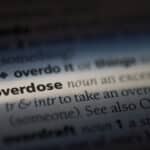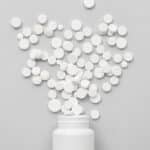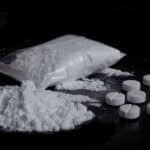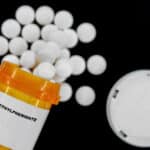What To Expect From Ritalin Withdrawal: Symptoms, Timeline, & Detox
Ritalin, the brand name for methylphenidate, is a prescription stimulant used in the treatment of attention-deficit hyperactivity disorder (ADHD) and narcolepsy. Ritalin is also a controlled substance, which means it has a high potential for abuse and dependence.
If you become dependent, you may experience Ritalin withdrawal syndrome when you stop taking it.
Withdrawal symptoms likely begin within 24 hours of stopping and may persist for up to five days. Although severe symptoms may disappear within the first several days, some symptoms may linger for weeks.
What Causes Ritalin Withdrawal?
Ritalin is a stimulant medication, similar to Concerta and Adderall, that increases activity in the central nervous system (CNS). It stimulates production of the neurotransmitters norepinephrine and dopamine.
As a stimulant, Ritalin can increase focus, attention, and alertness. However, Ritalin also increases heart rate, breathing, and blood pressure. In addition, it can decrease appetite and cause weight loss.
Additional side-effects of Ritalin may include:
- anxiety
- nausea
- vomiting
- dizziness
- irritability
- difficulty sleeping
After long-term Ritalin use, your brain may adapt to the chemical changes that occur when you take it, known as a physical dependence.
When you are dependent on a substance, it can be difficult to stop taking it cold turkey. If you suddenly stop taking Ritalin, you may experience mild to severe withdrawal symptoms.
Ritalin Withdrawal Timeline
Ritalin withdrawal begins within the first 24 hours after your last dose. However, the amount of time it takes withdrawal symptoms to set in depends on the type of Ritalin you take and how frequently you take it.
Stage 1
Within hours after stopping Ritalin, you may experience psychological symptoms, like mood swings and paranoia. You may also experience physical symptoms, like impaired sleep and changes in appetite.
In severe cases of Ritalin withdrawal, you may experience dangerous health conditions, like irregular heartbeat and seizures.
Symptoms of Ritalin withdrawal may include:
- agitation
- irritability
- depression
- desire for sleep
- insomnia
- increased appetite
- anxiety
- impaired concentration
- intense cravings
Stage 2
After about 3-5 days, most withdrawal symptoms start to improve. However, some people may continue to experience difficulty sleeping and cravings for weeks after stopping Ritalin.
In addition, some people experience severe symptoms for months after stopping Ritalin. Severe withdrawal symptoms can include:
- paranoia
- psychosis
- disordered thoughts
- hallucinations
- suicidal thoughts
If you or a loved one is experiencing severe withdrawal symptoms, please reach out for help. If necessary, medications can be used temporarily to lower the risk of harm to yourself and others.
Stimulant Detox
A medical detox program offers a safe environment to recover from withdrawal syndrome away from people and environments you may associate with drug abuse. Even if you only experience mild withdrawal symptoms, you may benefit from a professional detox program.
During detoxification, healthcare professionals will monitor your symptoms around-the-clock to keep you safe and comfortable. If you think you may have a substance use disorder (SUD), or addiction, a detox center can also help prepare you for a drug addiction treatment program.
Ritalin Addiction Treatment
When you are addicted, you may engage in compulsive drug use, regardless of how it impacts your life. Continued Ritalin abuse may require comprehensive treatment in an inpatient or outpatient program.
Although you may have a desire to stop using Ritalin, it can be difficult on your own. If you struggle with Ritalin abuse and are ready to seek help, your healthcare provider can connect you with a treatment specialist.
Depending on your individual needs, your treatment options may include:
Inpatient Rehab
An inpatient rehab center involves 24/7 supervision and a structured daily schedule. Inpatient treatment programs may offer behavioral therapy, individual counseling, support groups, and wellness activities.
Outpatient Rehab
Outpatient treatment allows you to live at home and travel to the treatment facility multiple times a week. Outpatient treatment varies in intensity and may include intensive outpatient programs (IOPs) and partial hospitalization programs (PHPs).
Behavioral Therapy
Behavioral therapy is one of the most effective treatment methods for stimulant addiction. With the help of a trained specialist, you can learn to identify unhealthy thought patterns and learn positive coping strategies.
At Northeast Addictions Treatment Center, we value comprehensive treatment options like behavioral therapy. If you would like to learn more about our treatment programs, please call us today.
Sources
Written by
Northeast Addition Editorial Team
©2024 Northeast Addition Center | All Rights Reserved
This page does not provide medical advice.








